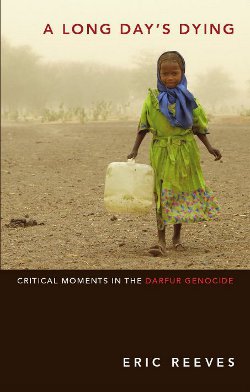Abstract
There are no trains leading to the death camps of Darfur. Transportation takes the form of militarily coerced displacement, forcing the African tribal peoples of Darfur, bereft of all resources, to trek over a harsh and unforgiving landscape. The international community has waited too long, the words have come too late and the actions that such words now demand are even more belated. The terrible crimes occurring in Darfur must not be ignored. The cries of the dead and dying demand justice; future génocidaires are listening closely noting carefully all failures of international resolve.
The main theme of this book is that the Khartoum regime is committing genocide in Darfur while the international community watches in silence or with mere hand-wringing.
Publication of such an important book, at this critical moment in the Darfur genocide, offers to government officials, academics, humanitarian aid groups, human rights organizations, as well as to the broader public an in-depth critical assessment of the current situation in Darfur. It also provides an unsparing assessment of the international community’s diplomatic efforts, past and present, to respond to Darfur. Such an assessment comes at a defining moment. The world is watching clearly and yet responding weakly. Action is essential now if we are not to see a further extension of the international failures so conspicuous in Rwanda and the former Yugoslavia.





































